#Lilia Skala
Text
Oscar Nominee of All Time: Round 1, Group A
(info about nominees under the poll)


LILIA SKALA (1896-1994)
NOMINATIONS:
Supporting- 1963 for Lilies of the Field
--
HARRISON FORD (1942-)
NOMINATIONS:
Lead- 1985 for Witness
#oscars#academy awards#oscar nominees#lilia skala#harrison ford#actors#film#lilies of the field#witness 1985#nominees group a#nominees group a polls
15 notes
·
View notes
Text
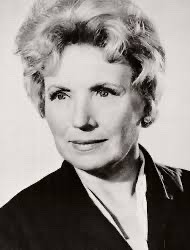

Birthday remembrance - Lilia Skala #botd
16 notes
·
View notes
Text

Flashdance (1983). A Pittsburgh woman with two jobs as a welder and an exotic dancer wants to get into ballet school.
More music video than movie, this feels like a late night special on VH1. It does make me wish Jennifer Beals had a better career, but we'll always have The L Word. 4/10.
#flashdance#1983#Oscars 56#Nom: Song#Won: Song#Nom: Cinematography#Nom: Editing#Adrian Lyne#thomas hedley jr#Joe Eszterhas#jennifer beals#Michael Nouri#Lilia Skala#sunny johnson#america#american#dance#class#4/10
22 notes
·
View notes
Text
Flashdance (1983)
Alex Owens is a female dynamo: steel worker by day, exotic dancer by night. Her dream is to get into a real dance company, though, and with encouragement from her boss/boyfriend, she may get her chance. The city of Pittsburgh co-stars. What a feeling!

View On WordPress
#Adrian Lyne#Belinda Bauer#Jennifer Beals#Kyle T. Heffner#Lee Ving#Lilia Skala#Malcolm Danare#Michael Nouri#Micole Mercurio#Phil Bruns#Ron Karabatsos#Sunny Johnson
3 notes
·
View notes
Text
The Alfred Hitchcock Hour: "One of the Family" (1965) Lilia Skala, Kathr...
youtube
0 notes
Text
Flashdance (1983)
Director: Adrian Lyne
Starring: Jennifer Beals, Michael Nouri, Lilia Skala
A Pittsburgh woman with two jobs as a welder and an exotic dancer wants to get into ballet school.
Jennifer Beals exploded onto the movie scene with her portrayal of Alexandra Owens in ‘Flashdance’. She stars as a young girl, who is a welder by day and an exotic dancer by night. She dreams of being a ballet dancer, but…

View On WordPress
0 notes
Link
Hey folks 😊😊
That's all for today.
Good evening / night.
Have a great week ahead 😊😊
See you tomorrow.
Now in my "Home Station" playing
FLASHDANCE... WHAT A FEELING
Irene Cara
1 note
·
View note
Photo

Movies I saw in 2022
↳ Lilies of the Field (1963)
#Lilies of the Field#*2022#Sidney Poitier#Lilia Skala#Lisa Mann#Pamela Branch#Francesca Jarvis#Isa Crino#Stanley Adams
18 notes
·
View notes
Photo

27. Uma Voz nas Sombras (Lilies of the Field, 1963), dir. Ralph Nelson
#cinema#ralph nelson#sidney poitier#lilia skala#american movies#1960s movies#classic movies#black and white movies#drama#based on novel by william e. barrett#young man#construction worker#catholic nuns#arizona territory#gospel#building a church#english lessons#mother superior#cinematography by ernest haller#music by jerry goldsmith#academy awards winner#silver berlin bear winner#golden globes awards winner#cinema icons#r.i.p. sidney poitier#cinefilos
7 notes
·
View notes
Text
Flashdance (1983)
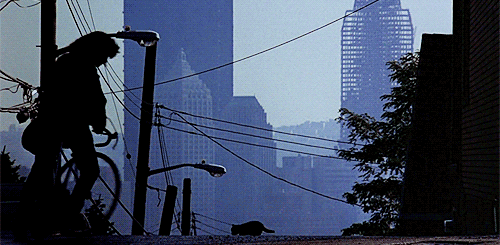



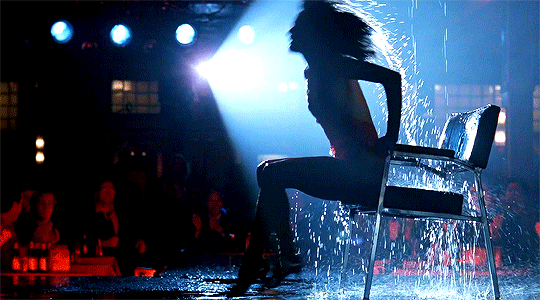
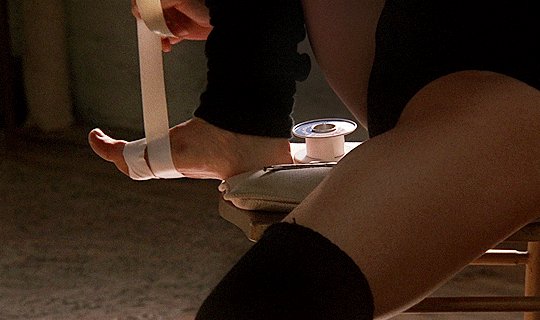


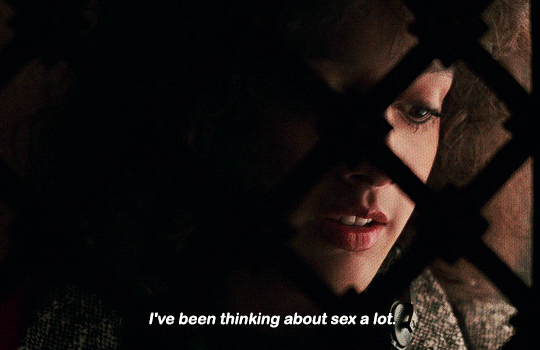







ESE: 40/100
50
+5 for the water
-10 for racist jokes
-10 for assault
+5 for figure-skating
-5 for strobe light
+5 for alligator costume
+10 for titties
-5 for Hannah dying
-15 for advice to “kill yourself”
+10 for pitbull with a pretty red bow
#Flashdance#80s films#80s movies#Jennifer Beals#Robert Wuhl#Michael Nouri#Lilia Skala#Kyle T. Heffner#Belinda Bauer#Sunny Johnson#Lee Ving#Malcolm Danare#Lucy Lee Flippin#romance#drama#music#dance
41 notes
·
View notes
Text


Lilia Skala (November 28, 1896 – December 18, 1994)
13 notes
·
View notes
Text
‘Lilies of the Field’: THR’s 1963 Review
On Oct. 1, 1963, United Artists hosted the New York premiere of 'Lilies of the Field.'
BY JAMES POWERS
OCTOBER 1, 2018 6:40AM
On Oct. 1, 1963, United Artists hosted the New York premiere of Lilies of the Field, starring Sidney Poitier and Lilia Skala. The film was nominated for five Oscars at the 36th Academy Awards, winning one for best actor for Poitier. The Hollywood Reporter’s original review is below.
Lilies of the Field is a funny, sentimental, charming and uplifting film, in which intelligence, imagination and energy are proved again to be beyond the price of any super-budget. The United Artists release, produced and directed by Ralph Nelson, could be termed the sleeper of the year if it had not already grabbed a handful of prizes at the Berlin Film Festival. So it comes not unheralded. None the less, festival awards do not always indicate popular appeal. Lilies, it is safe to say, will be a great audience picture. It deserves all its popularity and whatever artistic success it is granted.
Although the crux of Lilies is the unlikely confrontation between five eager workers of the Lord, and one somewhat reluctant helper, it is given dimension by the background of these six key characters. The dedicated are Catholic nuns, refugees from behind the Iron Curtain. Their strong right arm is a young American, a Negro, who is not of their faith in the strict sense of the word, but is of the greater faith in which all men of good will subscribe, that of leaving the earth a little better than it is found.
James Poe’s screenplay, based on a story by William E. Barrett, is hardly to be faulted. He sets his story easily and economically. He develops it with character and meaningful detail. He skillfully utilizes humor to make a serious point. This is the harder way and the more effective way. How many good causes have been sunk by earnest dullness!
Sidney Poitier plays the young Negro who wanders by chance into the small religious community somewhere in the desert Southwest. The nuns have inherited the arid property and are trying to make it a useful addition to the impoverished community, hopefully planning a church, a school, a hospital. It is apparent to the Mother Superior that Poitier is an instrument of the Lord in this plan. It is not so quickly apparent to Poitier.
There is an obvious allegory in the story, with the alliance of an American Negro with refugee nuns to provide spiritual, education and health facilities for a poor Latin-American community. The element of racism is only once overtly made; in the rudeness of a native American (white) to Poitier. Since the cooperation of disparate religious, racial and national elements has previously been subtly made, this point seems somewhat jarring. But apparently Poe uses it to demonstrate his hero’s self-respect, and to make a point about judging a man’s worth by his labor, not his color.
Although Poitier is a Negro, and plays a Negro, the role is not that of any Negro stereotype, however well intentioned. The character is a universal young man, today’s young man, hep, flip and yet with a longing to create, to build something of enduring value in a world where the bulldozer seems designed to level impartially hill and home. Poitier has had little opportunity to display his comic talents. He shows here his timing and technique are impeccable. His relationship with the five women is delicate — not because of difference in race but of sex — and plays beautifully.
Lilia Skala is the Mother Superior and play strongly against and with Poiter. She is both executive and a woman of God and both qualities emerge. As her small community, Lisa Mann, Isa Crino, Francesca Jarvis and Pamela Branch, are fine. The fact that the nuns usually speak German among themselves is not handicap to understanding and should not be stressed. Stanley Adams is good as a friendly atheist; Dan Frazer interesting as the circuit-riding priest and director Nelson is capable in a minor role.
Ernest Haller’s photography is well-composed and lit. Jerry Goldsmith’s music score is unobtrusive but plays on the emotions. Particularly effective is his use of variations on themes, such as hymns, in the forefront of the story. C. W. Faulkner’s sound is natural. James McCafferty’s editing is good.
— James Powers, originally published on July 23, 1963.
#United Artists#The Hollywood Reporter#Cinema#Lilies of the Field#Sidney Poitier#Lilia Skala#Lisa Mann#Isa Crino#Francesca Jarvis#Pamela Branch#Stanley Adams#Dan Frazer#Bobby Driscoll#Ralph Nelson
2 notes
·
View notes
Text
The Alfred Hitchcock Hour: "One of the Family" (1965) Lilia Skala, Kathr...
youtube
0 notes
Photo
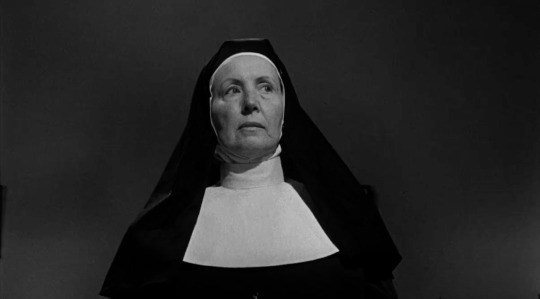
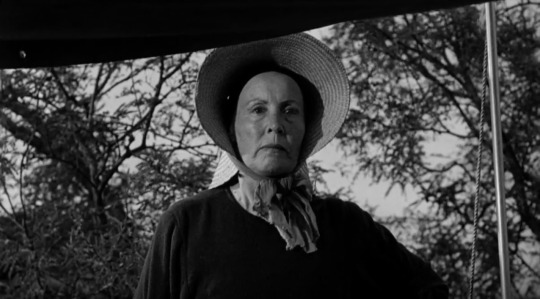
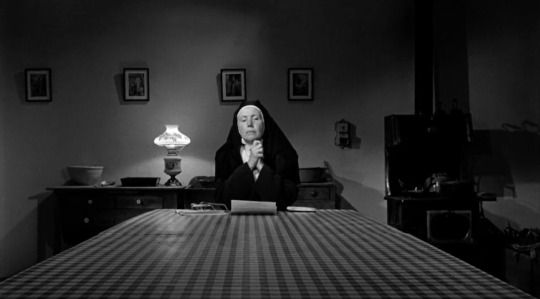
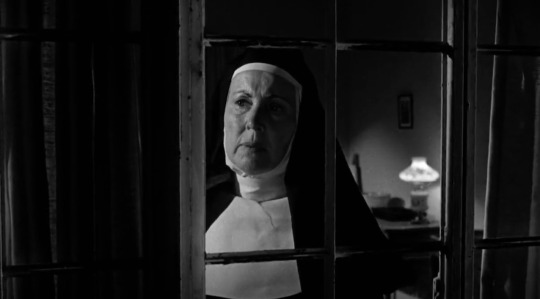
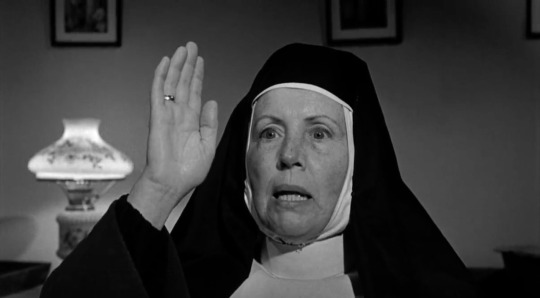
Lilia Skala as Mother Maria - Lilies of the Field (1963)
Golden Globe Award Nominee for Best Supporting Actress in a Motion Picture
3 notes
·
View notes
Text
Flashdance (1983).

Take your passion and make it happen 𝅘𝅥𝅮
Esa canción siempre me prende, porque soy súper débil frente a un buen musical o una buena escena de baile; la bailarina frustrada en mí sale a la vida. Por mucho que ame “Flashdance”, nunca la pude pillar desde el principio en el cable, así que fue un alivio encontrarla en Netflix.
Alex Owens es una joven de 18 años, tan adorable como encantadora, que sueña con ser una bailarina profesional; por cosas de la vida, Alex jamás ha podido tomar clases de danza, pero está decidida a cumplir sus sueños. Alex tiene dos trabajos: de día, es una soldadora y de noche, es una bailarina en un club de dudosa reputación. No, nunca tanto, pero ahí Alex puede lucirse y tirarse agua encima.
La película continúa contando el trayecto de Alex hasta la audición final para entrar a una academia de baile. La escena ya es un clásico, la música es bacán y la coreografía es digna de imitar, pero siempre me mata que la doble sea tan obvia.
#'80#1983#Baile#Adrian Lyne#Jennifer Beals#Michael Nouri#Sunny Johnson#Kyle T. Heffner#Lilia Skala#Cine estadounidense
3 notes
·
View notes